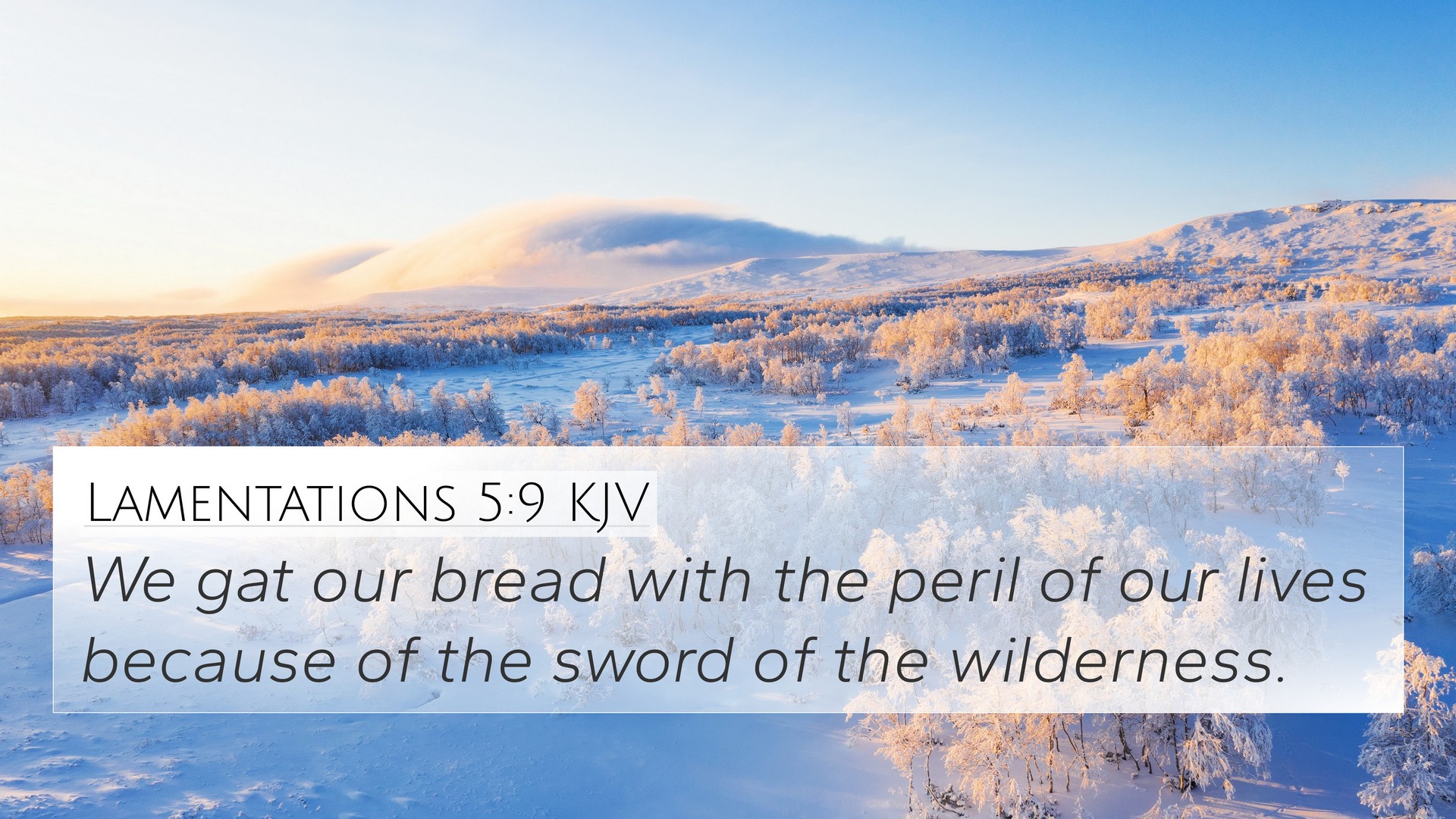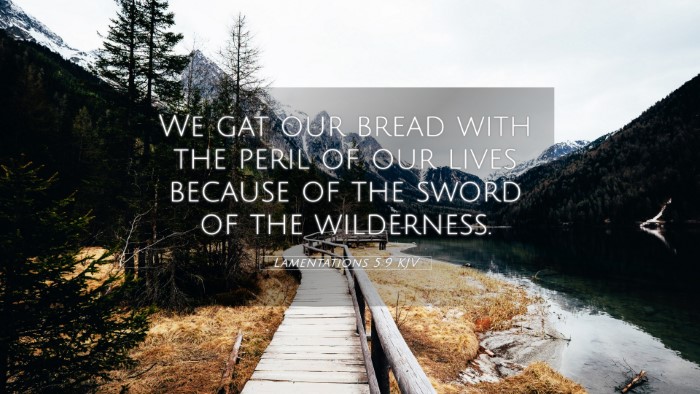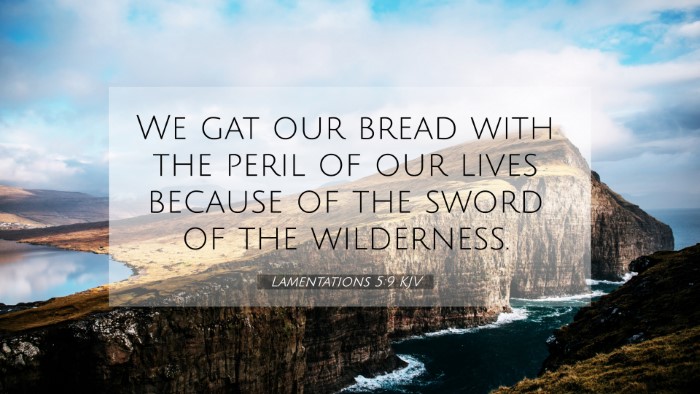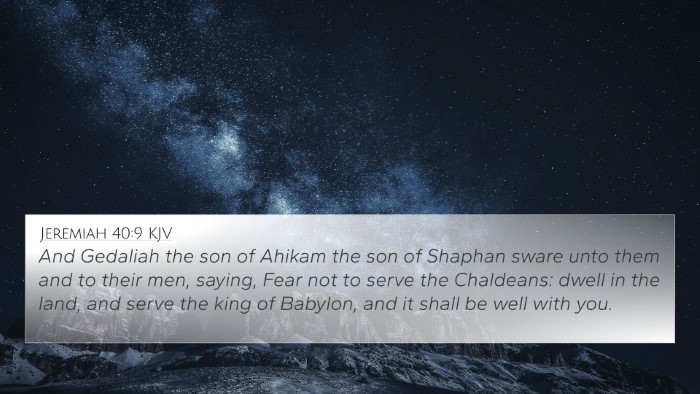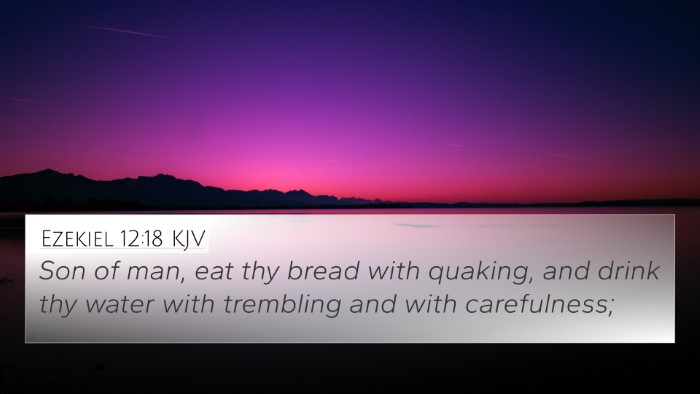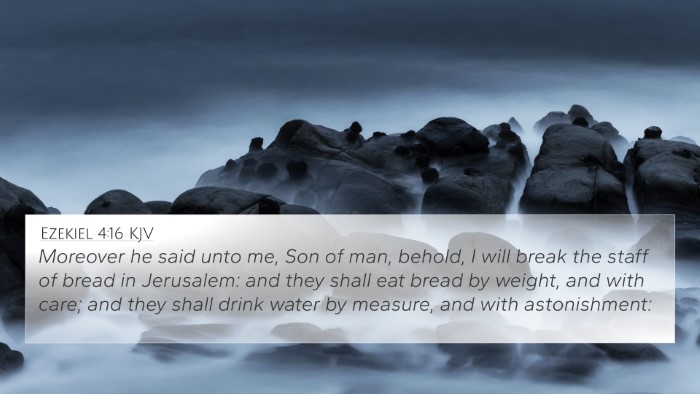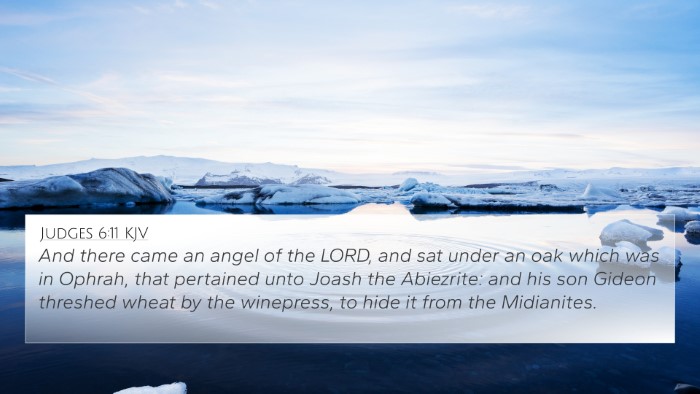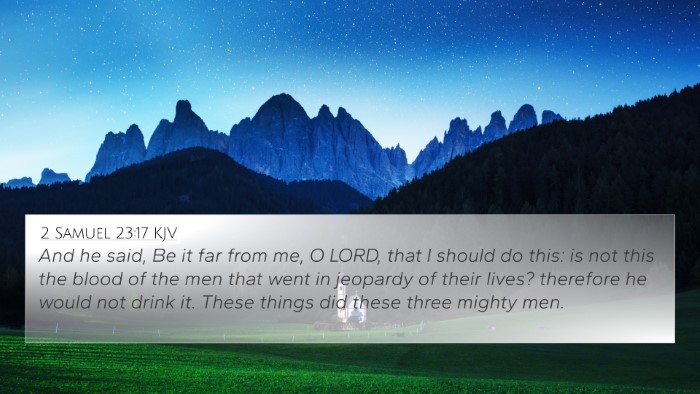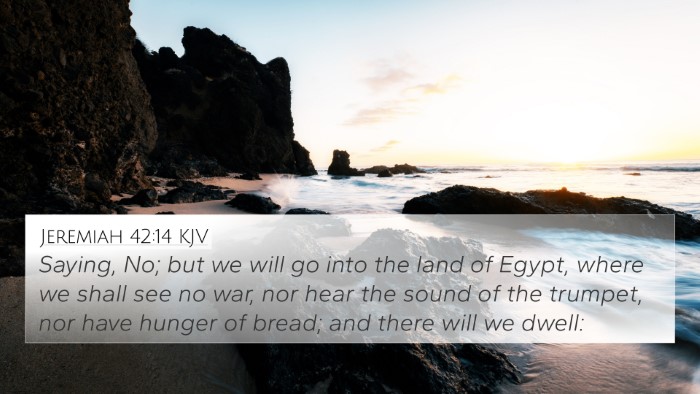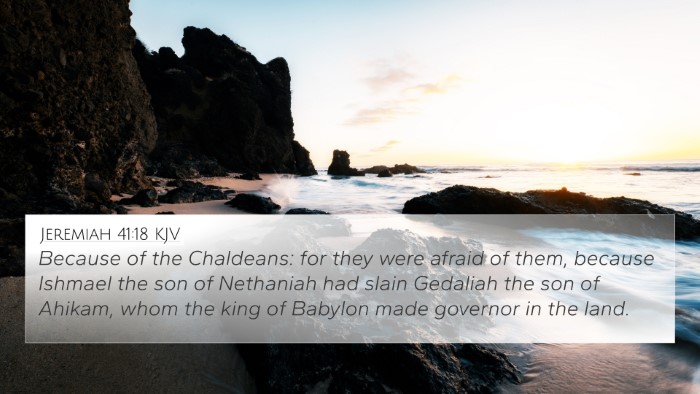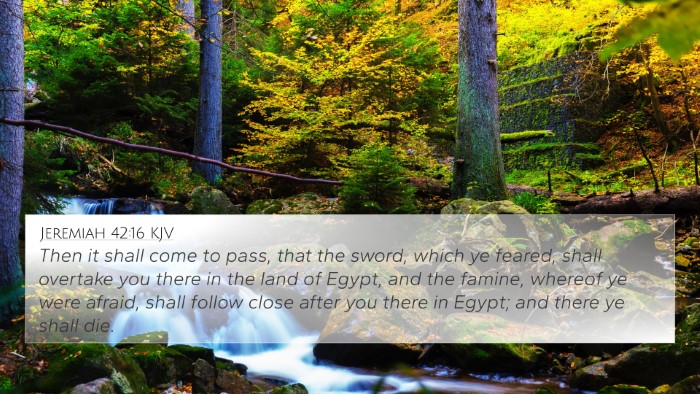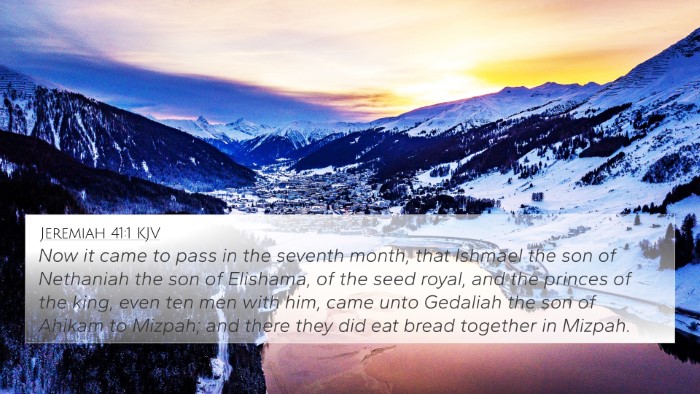Bible Verse Analysis: Lamentations 5:9
Verse: "We get our bread at the peril of our lives, because of the sword of the wilderness."
Overview
Lamentations 5:9 is a poignant expression of the dire circumstances faced by the people of Judah after the destruction of Jerusalem. This verse encapsulates the desperation and danger involved in securing basic sustenance amidst a hostile environment.
Meaning and Interpretation
Combining insights from public domain commentaries, we can derive multiple layers of meaning from Lamentations 5:9. The verse highlights the extreme conditions of famine and danger that the Israelites experienced. Below are the interpretations drawn from notable Bible commentaries:
-
Matthew Henry:
Henry describes how the Israelites faced not only physical hunger but also the emotional and spiritual torment of their circumstances. The “sword of the wilderness” denotes both the literal threats from hostile forces and the overarching divine judgment that turned their homeland into a desolate place.
-
Albert Barnes:
Barnes emphasizes the perilous nature of obtaining food during this time, suggesting that the mention of peril points to a community in turmoil. The “sword” represents the constant threat of violence and loss, underlining the fragility of life in such desperate conditions.
-
Adam Clarke:
Clarke adds that this verse exemplifies the complete state of degradation that the people faced. He discusses the metaphorical use of "bread" as not only physical sustenance but also as a symbol of life itself, showing that obtaining it came at a grave cost.
Thematic Connections
This verse firmly establishes themes of survival, suffering, and the human condition in relation to divine providence. The struggle for basic needs is a recurring biblical theme, which evokes the following connections:
- Psalm 37:25: "I have been young, and now am old; yet have I not seen the righteous forsaken, nor his seed begging bread." This verse reassures believers of God's faithfulness in provision amidst struggle.
- Matthew 6:11: "Give us this day our daily bread." Here, Jesus teaches reliance on God for daily necessities, reflecting the same longing for food and sustenance absent in Lamentations.
- Deuteronomy 8:3: "Man does not live by bread alone, but man lives by every word that comes from the mouth of the Lord." This highlights the spiritual sustenance that is as crucial as physical sustenance.
- John 6:51: "I am the living bread that came down from heaven." This illustrates the ultimate fulfillment Jesus provides, contrasting the desperation expressed in Lamentations.
- Isaiah 33:16: "He will dwell on the heights; his place of defense will be the fortresses of rocks; his bread will be given him; his water will be sure." A promise of safety and provision in Lord’s presence.
- Lamentations 4:9: "Those slain by the sword are better off than those who die of hunger." This indicates a direct correlation in the accounts of despair and suffering between the two verses.
- Romans 8:37: "No, in all these things we are more than conquerors through him who loved us." This assures Christians that despite suffering, they are victors through Christ’s love.
Cross-Referencing Methods
For those seeking to understand Biblical texts in depth, using tools for Bible cross-referencing can be invaluable. Here are some methods and resources for effective cross-referencing:
- Bible Concordance: A comprehensive index that helps locate where specific words and phrases appear throughout the Bible.
- Cross-Reference Bible Study: Grouping verses that illustrate a similar theme or point, aiding in deeper comprehension and thematic understanding.
- Comparative Bible Verse Analysis: Studying verses side-by-side to draw theological parallels and differences across scriptural texts.
- Bible Reference Resources: Utilizing published guides or online databases that offer thematic connections between scripture passages.
Conclusion
Lamentations 5:9 serves as a strong reminder of the trials faced by the faithful and the challenges of survival. By utilizing Cross-Referencing Biblical Texts and exploring thematic connections, we can understand the broader narrative of struggle, sustenance, and divine provision found throughout scripture.
This verse beckons readers to explore not just its immediate context but also how it ties into the wider narrative of hope and restoration present in the Bible, as seen through the cross-referenced verses and thematic discussions.
